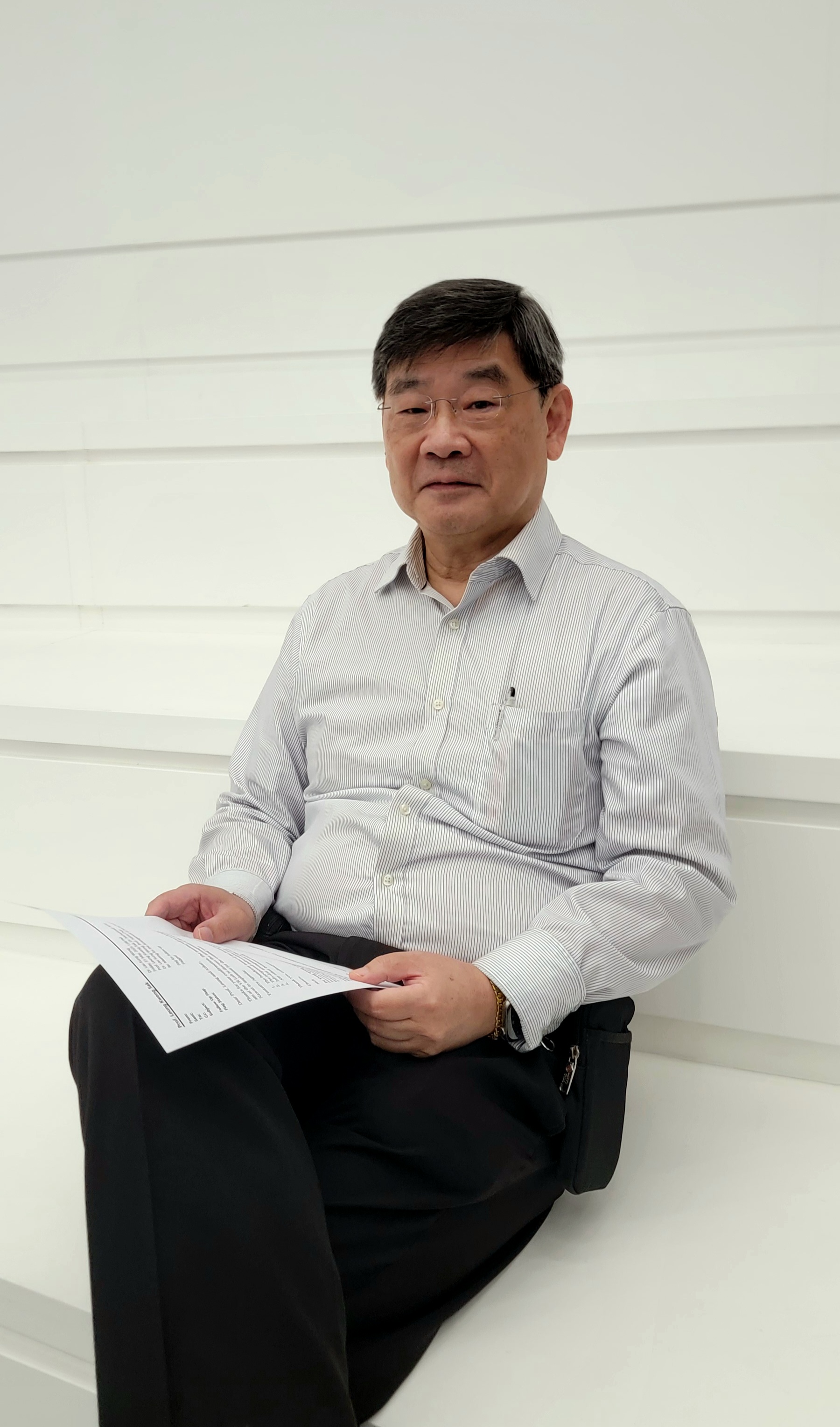
梁廣錫 教授
Prof. Kwong Sak, LEUNG
Prof. Leung received his BSc (Eng) and PhD degrees from the University of London in 1977 and 1980 respectively, and is a fellow of HKIE, a member of IET and ACM, a Life senior member of IEEE and a chartered engineer. He was elected to be a Distinguished Fellow of Hong Kong Computer Society in 2000. He was one of the founder members and the Chairman of ACM Hong Kong Chapter and a Council member of Hong Kong Computer Society. He contributed significantly in setting up the Engineering Faculty of CUHK as a member of the Planning & Implementation Committee and all other 7 committees. He served as a member of the Engineering Panel of the Research Grant Council of the University Grant Committee for 5 years (94-99). He was an external examiner of OUHK. Prof. Leung was member of Editorial Board for Fuzzy Sets and Systems (1999-2019) and the IT Magazine (94-98), associate editor of International Journal of Intelligent Automation and Soft Computing (2001-2010). He has served as chairman and member of numerous international conference organizing and programme committees. He was a member of the University's Research Committee and the Convener of Engineering Panel (96-00). He has authored and co-authored over 400 publications with an average impact factor of >8.06 for the top 100 Journal papers and 4 books. His research interests are in the areas of knowledge engineering, bioinformatics, drug discovery, soft computing, genetic algorithms and programming, machine learning, fuzzy logic applications, and AI architecture.
The numbers of MPhil and PhD students graduated under his supervision are 41 and 31 respectively.
Prof. Leung is ranked among the world’s top 2% most-cited scientists (subfields: Artificial Intelligence and Bioinformatics) in the 2021 released metrics published by Stanford University for both the career-long and single-year categories. (link)
Area of Interest
- Knowledge Engineering
- Bioinformatics & Data Mining
- Machine learning & DNN
- Fuzzy Logic Applications
- Genetic Algorithms and Programming
- AI Architecture (Intelligent Sensor Systems, IoT)
Academic Qualifications
- PhD (Queen Mary College, University of London, 1980)
- BSc(Eng) (Queen Mary College, University of London, 1977)
Professional Experience
-
Distinguished Professor, Department of Applied Data Science, Hong Kong Shue Yan University (2022 – Now)
-
Emeritus Professor, CSE Dept, CUHK (2018 – Life)
-
Research Professor, CSE Dept, CUHK (2018 – 2021)
-
(Chair Professor) Professor of Computer Sci & Eng (2002 – 2018)
-
Professor in the CUHK-BGI Innovation Institution of Trans-omics (2011 – 2018)
-
Associate Director, Institute of Future Cities (IOFC) (2014 – 2021)
-
Director in Urban Informatics Programme, IOFC (2014 – 2021)
-
Chairman, Computer Science & Engineering Department, CUHK (1999 – 2005)
-
Head, Division of Computer Science, Graduate School, CUHK (1992 – 1997)
-
Professor, Computer Science & Engineering Department, CUHK (1996 – 2002)
Research Grants
Developed 8 major computer hardware and software systems. Research Grants: Over 80 million dollars (>50 grants) as PI or Co-I.
- Multi-modal approaches to determine digital clinical phenotyping, novel proteomic biomarkers, and microbiota-host responses of REM sleep behavior disorder, a prodromal stage of alpha-synucleinopathy neurodegeneration, in a prospective family cohort
- Neuropsychiatric ‘long-COVID’ in adult patients
- Digital mental health in depression - deep phenotyping and monitoring
- AI-Based Day and Night Digital Phenotyping of Rapid Eye Movement (REM) Sleep Behaviors Disorder (RBD) and its Prediction towards α-Synucleinopath
-
Multimodal brain connectomics markers of idiopathic rapid eye movement (REM) sleep behavior disorder and their prediction towards α-synucleinopathy
Publications
Author or co-author of over 400 international professional publications in computer science/ engineering in the fields of drug discovery, bioinformatics, knowledge engineering and intelligent sensors.
- Wang R, Li S, Cheng L, Wong MH, Leung KS. Predicting associations among drugs, targets and diseases by tensor decomposition for drug repositioning. BMC Bioinformatics 2019; 20:628.
- Cheng L, Leung KS. Identification and characterization of moonlighting long non-coding RNAs based on RNA and protein interactome. Bioinformatics 2018; 34:3519-3528.
- Yi WY, Leung KS, Leung Y. A modular plug-and-play sensor system for urban air pollution monitoring: design, implementation and evaluation. Sensors; 2017; 18: pii: E7. doi: 10.3390/s18010007.
- Cheng L, Fan K, Huang Y, Wang D, Leung KS. Full characterization of localization diversity in the human protein interactome. J Proteome Res 2017; 16:3019-3029.
- Wang R, Zheng X, Wang J, Wan S, Song F, Wong MH, Leung KS, Cheng L, “Improving bulk RNA-seq classification by transferring gene signature from single cells in acute myeloid leukemia”, Briefings in Bioinformatics 23 (2), 2022.
- Wong ML and Leung KS, Data Mining Using Grammar Based Genetic Programming and the Applications. Kluwer Academic Publishers, 2000. (Book in GP)
- Jin HD, Wong ML, Leung KS. Scalable Model-based Clustering for Large Databases Based on Data Summarization. IEEE Trans Pattern Anal Mach Intell (PAMI) 2005; 27:1710-1719
- Chan TM, Leung KS, Lee KH. TFBS Identification Based on Genetic Algorithm with Combined Representations and Adaptive Post-processing. Bioinformatics 2008;24:341-349.
- Chan TM, Leung KS, Lee KH. Memetic Algorithms for De Novo Motif Discovery. IEEE Trans Evol Computat 2012;16:730-748.
- Wong ML, Leung KS. An Efficient Data Mining Method for Learning Bayesian Network Using an Evolutionary Algorithm-Based Hybrid Approach. IEEE Trans Evol Computat 2004;8:378-404.
Others
- Editorial Board Member: IT Magazine and Fuzzy Sets & Systems(till 2019); Associate Editor, International Journal of Intelligent Automation and Soft Computing (2001-10).
- Chairman, member of organizing and programme committees of many international conferences.
- Reviewers for international journals and conferences including IEEE Transactions and Computer.
- 14 (US, China and Hong Kong patents in HBV mutations, drug discoveries and intelligent sensor system.)
- 31 PhD; 41 MPhil


